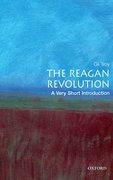Although he last ran for office nearly 30 years ago, and died eight years ago, Ronald Reagan remains a surprisingly strong presence on today’s campaign trail. It is not just the multiple times Republican candidates’ invoked his name during the primary debates. It is not just that Americans are still debating Reagan’s cry to shrink the federal government. It is not just that Barack Obama has said he wants to be as transformational a president as Reagan was and Mitt Romney says he wants to follow the Reagan playbook – or that Newsweek has a cover story renaming the President “Barack Reagan.” It is also that each of the two candidates is trying to replicate a Reagan electoral feat.
Mitt Romney is trying to conjure up the spirit of 1980. During those days of economic trauma, low morale, and national angst, a remote, gaffe-prone Republican candidate – who even believed that trees caused more air pollution than cars – was stuck in a tight race against an unpopular, cerebral opponent whose rocky first term belied the euphoria his quick ascent to the Oval Office had generated four years earlier. Ronald Reagan sealed his victory over Jimmy Carter with an effective debate performance, including his avuncular dismissal of Carter’s attacks with the kiss-off line “There you go again.” After the debate, the Gallup Poll recorded its largest candidate jump in the polls since polling began, approximately ten points in Reagan’s favor. On Election Day, Reagan defied the expectations, and silenced the scoffers.
Obama is hoping that 2012 will be more like 1984 than 1980. That year, an embattled incumbent whose party suffered serious electoral setbacks two years earlier, and had struggled to jumpstart the economy, won reelection with a triumphal campaign over a weak opponent. Ronald Reagan’s “Morning in America” campaign not only won Reagan four more years, it shaped the legend of Ronald Reagan, the president who brought peace, patriotism, and prosperity back to America.
Of course, history, like a winning army, only marches forward, and, as in sports, there are no do-overs. The two candidates can learn from Reagan’s successes – but they also should learn from Reagan’s failures. Reagan pretended that his 1981 win was a mandate for change, when it was basically an anti-incumbent, ABC election – with Americans choosing Anybody But Carter. And in 1984, Reagan scored more of a personal victory than a party victory; his Olympic pride and apple pie campaign had been so vague that he retained power but had trouble governing.
Whoever wins in 2012 will need broad support to lead. While running to win this fall, both candidates need to think about the day after, about how to unite the country and move forward. Such considerations should keep the campaign more constructive and more centrist than it has been, given that the President has to lead all the people. And the President needs a vision. Otherwise, he will echo the famous movie, The Candidate. In that 1972 movie, Robert Redford plays a longshot candidate who wins a tough Senate race. The movie ends with the famous tagline “What do we do now?”




[…] Gil Troy, Oxford University Press Blog, […]
[…] November 1975: Daniel Patrick Moynihan addresses the UN on Zionism permalink buy this book read more Posted on Saturday, November 10th, 2012 at 6:30 am SHARE: Before Daniel Patrick […]